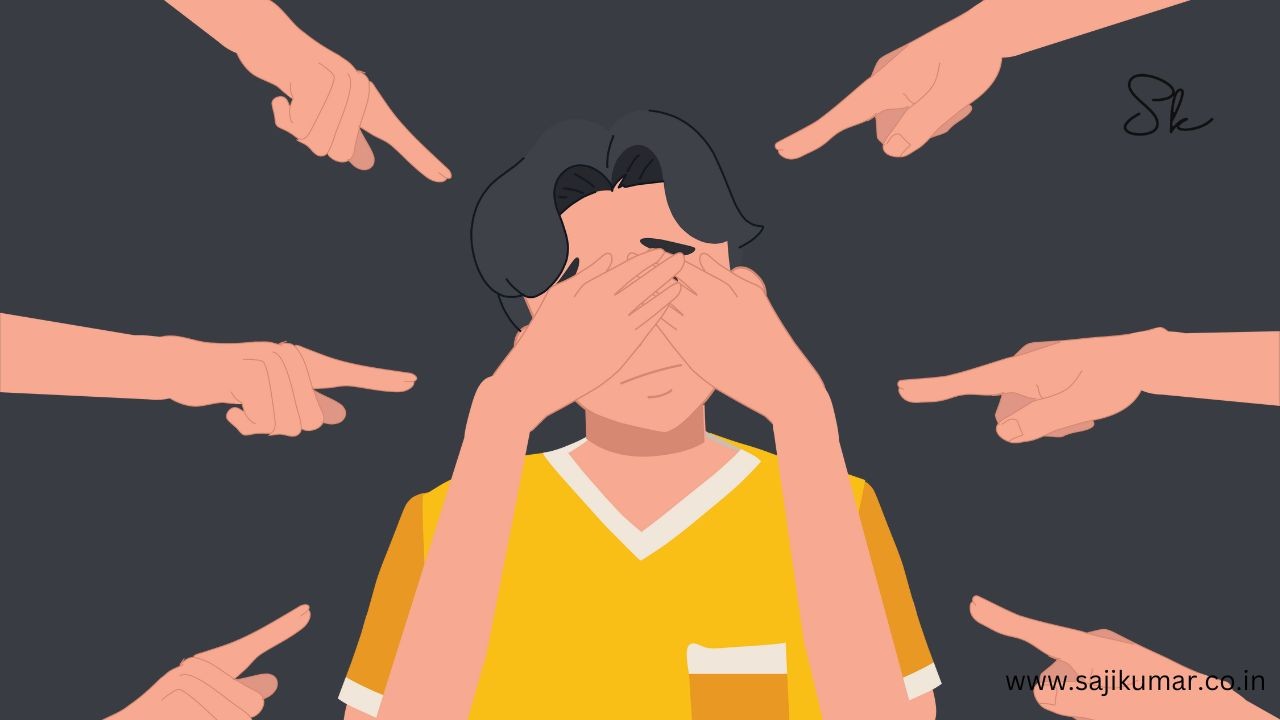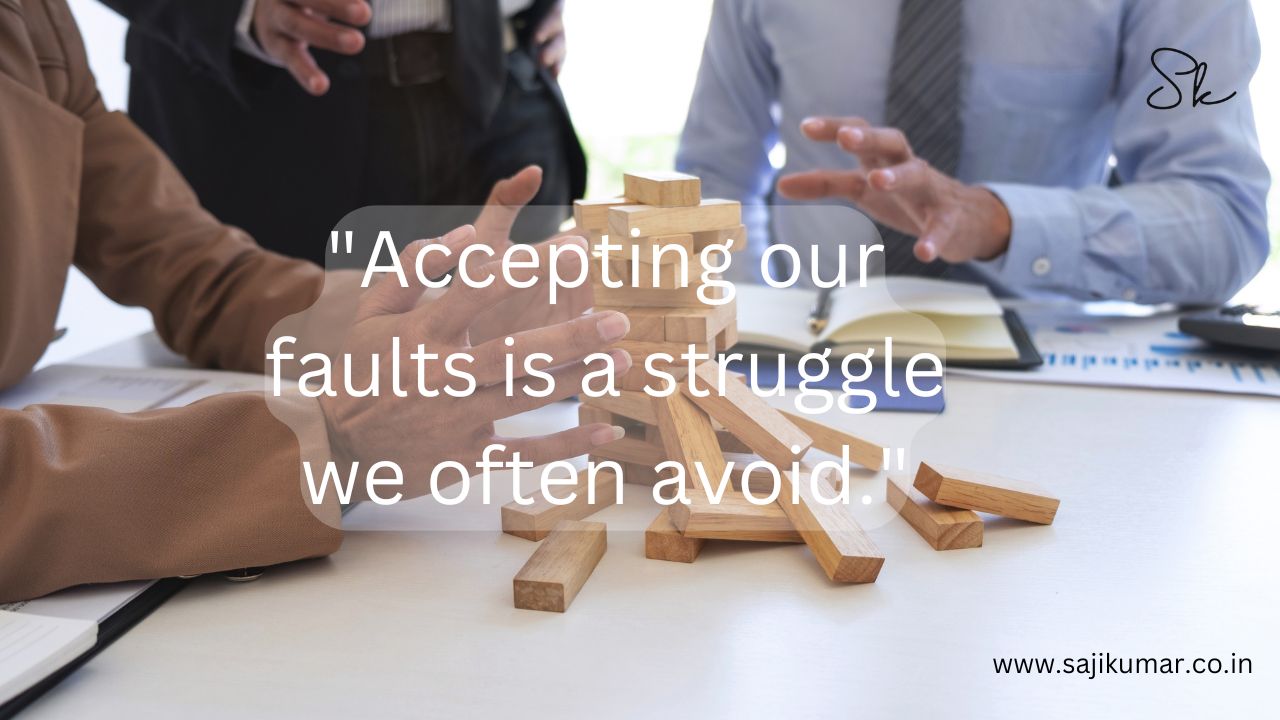The Blame Game: Why We Seek Scapegoats for Life's Misfortunes?
Oct 30, 2024
Vaikom is a well-known place in Kerala. I was born and grew up in an old “Tharavadu” (ancestral home) in our village called Vechoor in Vaikom, a place famous for its wealth and pride in the olden days. It was at the time many misfortunes began to set in when I was born. The ancestral home began to have hard times with depleting wealth. During my childhood, I often faced blame, with many saying that my birth was the reason for our family’s financial decline. Driven by fatalism, I also felt that might be true. Most of my family members, including my parents, sidelined me as a child of not good omen. I learned to live with it and gradually began the never-mind style.

Humans crave to find someone to blame for every foul and misfortune around them. My father could not manage his small business, which created debt. They directed their frustration on the newborn child to escape their faults and hide their inabilities.
We rarely take responsibility for our failures or mistakes but resort to passing the buck. The husband blames his wife and her family for his faults. The wife blames the husband for not caring about household matters. The teachers blame students. Girlfriends and boyfriends exchange allegations for relationship problems. Children blame their parents for their mistakes. They blame themselves for financial issues and poor job prospects due to the poor quality of education their parents helped them get.

It is not unique to any individual. It is a common behavioural pattern in the society. We don’t accept our faults. Instead, we shift the blame onto others. Essentially, we need someone to pass the buck to. When governments change, the new government blames the incumbent for all mistakes and mishandling. They consider themselves more competent to run the government. If trouble arises during their governance, they point to the former administration. We have seen this in Maharashtra, where there has been no change after changing the government mid-term. We have seen old wine in a new bottle with label changes. Most of the old members remain in the new government. Yet, they blame the old one just for the sake of it. The same happened with the Central government. It is in power straight for the third term. But still, they blame the old government for all faults. The cycle continues to move regardless of who is riding it.
A few days ago, I was driving towards Tamil Nadu with the help of Google Maps to find my destination. When a diversion came up, my friend suggested an alternate route, but I chose the one recommended by Google. Later, we hit a small traffic block, and suddenly my friend said: "See, I suggested the other route. If you had taken it, we would have arrived by now." He was unaware of that block or the proper routes of the other road. But when he got a chance to blame, he seized the opportunity. In another instance, one of my friends gave a job to someone who was, at the time, a good performer. Later, when he met his college mate and realised that this mate was in a slightly better financial position, he suddenly blamed my friend. He accused him of not suggesting another job instead, claiming that my friend did this purposely to hinder his growth. He became furious over the help he had once been thankful for. Later, he got blamed for his help.

Humans are essentially selfish and greedy. We think only of ourselves and calculate profit and loss. It is difficult for us to change. We calculate every action in terms of profit and loss. Instead of recognising that everyone makes mistakes and that no one is perfect, everyone strives to prove greater than others. The competitive mindset pushes us to find faults with others. But what is a so-called mistake? A mistake often lies in another person's perception; it is merely an individual perspective. We must recognise that we are all living our lives on equal terms.

SAJIKUMAR
https://sajikumar.co.in/
Share
Comments
